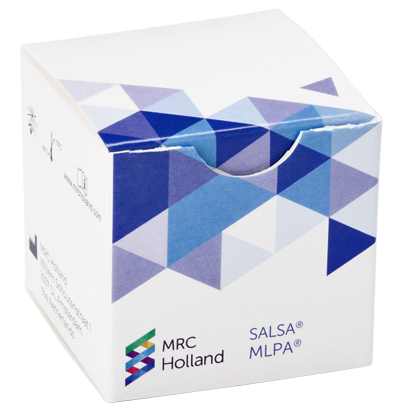P036 Subtelomeres Mix 1

SALSA® MLPA® Probemix P036 Subtelomeres Mix 1 detects copy number variations in subtelomeric regions.

Contents: 46 MLPA probes, including 41 probes for the subtelomeric regions, with the exception of the short p-arm of the 5 acrocentric chromosomes (13, 14, 15, 21 and 22). For these, an extra probe is included detecting the q-arm, close to the centromere.

Tissue: genomic DNA isolated from human peripheral whole blood, buccal swabs or specified prenatal samples (see Intended Purpose).

Application: intellectual disability, developmental delay, congenital abnormalities and/or pregnancy loss.

IVDD certified and registered for in vitro diagnostic (IVD) use in selected territories.

